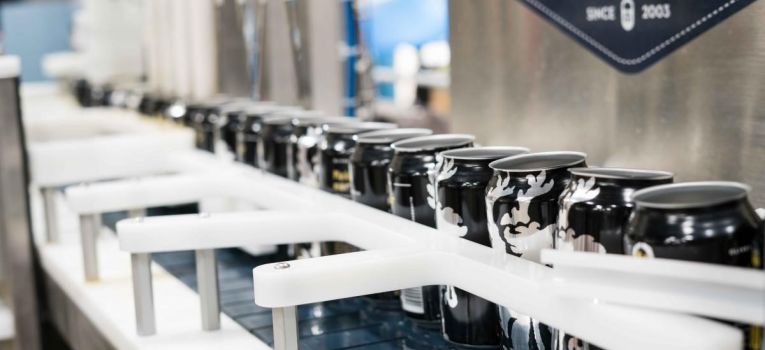Sustainability in Retail: Benefits for Retail Manufacturers
Article
Retail manufacturing is one of the most energy- and resource-intensive industries in the modern world.
By transforming strategy in a way that embraces sustainability across environmental and social values, businesses can stay ahead of the curve and capture opportunities missed by more traditional systems.
Retail manufacturing is one of the most energy- and resource-intensive industries in the modern world. For example, a report from the Ellen MacArthur Foundation found that the textiles industry alone consumes 98 million metric tons of non-renewable resources and 93 billion cubic meters of water every year, in addition to emitting 1.2 billion metric tons of CO2 equivalent annually.
Many in the industry – from brands and manufacturers to consumers themselves – are coming to the conclusion that the current trend is unsustainable, that the industry must change and adapt in order to address challenges in supply chains and achieve better outcomes overall. Climate change and resource scarcity threaten every aspect of modern life, particularly highly distributed and contingent systems like those of modern manufacturing. By transforming strategy in a way that embraces sustainability across environmental and social values, businesses can stay ahead of the curve and capture opportunities missed by more traditional systems. Sustainable practices can also bring a variety of benefits for manufacturers.
Mitigating Climate Risks Through Sustainable Strategy
Climate change is increasing the frequency and unpredictability of extreme weather events, disrupting distribution systems, manufacturing facilities and the key communities that they support. The risks associated with the changing global climate could be potentially overwhelming for businesses relying on mass manufacturing. Retail industries have already seen the effects of climate change on the availability of raw materials and natural resources, which affect both cost and production capacity. Global cotton yields, for example, stand at around 22 million tons per year, but yields in the US are predicted to decline by more than a third this century, according to even the slowest models of global climate change.
Manufacturing businesses that make sustainability a core part of their practice can mitigate these risks in two key ways. They contribute to reducing the overall severity of climate change by minimizing their greenhouse gas emissions, reducing their output of pollution, and by setting an example for other businesses. They are also well-positioned to build greater resiliency into their processes, creating redundant systems and safeguarding processes to ensure that resource scarcity and extreme weather do not put their operations at risk.
Meeting Stakeholder Sustainability Demands
Investors and customers are increasingly making their purchasing decisions with sustainability in mind. General globalization has impacted the increased spending by consumers on sustainable fast-moving consumer goods (FCMGs). Studies by financial authorities, including the FTSE, have shown that more than half of global asset owners implement environmental considerations in their investment strategies. These are significant market trends that companies are encouraged to adapt to or risk getting left behind as the market shifts toward sustainable development. Taking measurable action toward sustainability and communicating this action with sufficient transparency is crucial to continue to compete in the constantly evolving retail landscape.
Keeping Ahead of Regulation
The apparent impacts of climate change and pressure from the UN’s SDGs have put environmental and social issues into the spotlight for local and national governments across the globe. In response, many regulations on emissions, resource use and manufacturing practices are being updated and tightened to more strictly control unsustainable practices and nudge industry toward compliance. Companies that wait for regulation to change and then try to catch up to it will have to expend significant resources in a short time to rapidly overhaul processes entrenched in the old status quo.
It is more effective and less disruptive to plan ahead by working to comply with existing high quality standards, such as those set by CDP, EcoVadis, ISS and other organizations. Working toward meeting these standards enables and incentivizes organizations to benchmark, measure and manage their environmental and financial risks. Data obtained during this process also empowers better, more informed decision-making and planning initiatives.
Positive Impacts on Local Communities
Developing more sustainable practices and ensuring cleaner, greener processes also usually means making a safer environment for workers.
Unsustainable practice in retail manufacturing has the most visible effect on the communities local to manufacturing sites. From polluting local waterways to overusing local resources, the significant negative impact that unsustainable or poorly managed manufacturing can have on nearby communities exists in stark contrast to the economic opportunities industry brings. Developing more sustainable practices and ensuring cleaner, greener processes also usually means making a safer environment for workers. In order to ensure that reductions in pollution and resource use are taking place, a manufacturer’s clients will often increase their oversight of its facilities, which also contributes to identifying and reducing any potential workers’ rights issues. In addition, many factories are starting to develop in-house renewable energy generation, both to diminish use of high-emission fuels and to reduce their dependence on national grids that may be under threat from increasingly extreme weather as the climate changes. Where factories are able to generate more energy than they use, investing in infrastructure to distribute this extra energy can extend this independence to local communities.
Cost Savings
One of the key tenets of sustainable manufacturing is maximizing efficiency. More efficient systems use less energy and produce less waste, having less of an impact on the environment. Sustainability-minded efficiency drives focus on minimizing waste, preventing excess use of resources and planning for the future. This focus brings down costs associated with waste disposal, over-sourcing and unforeseen challenges, creating scope for significant savings over the medium and long-term.
CleanChain, an ADEC Innovation, helps you gain visibility and insights into the chemical use in your supply chain. Want to find out more? Book a free demo with us today to find out how CleanChain can help you engage your supply chain and improve your chemical management initiatives.



